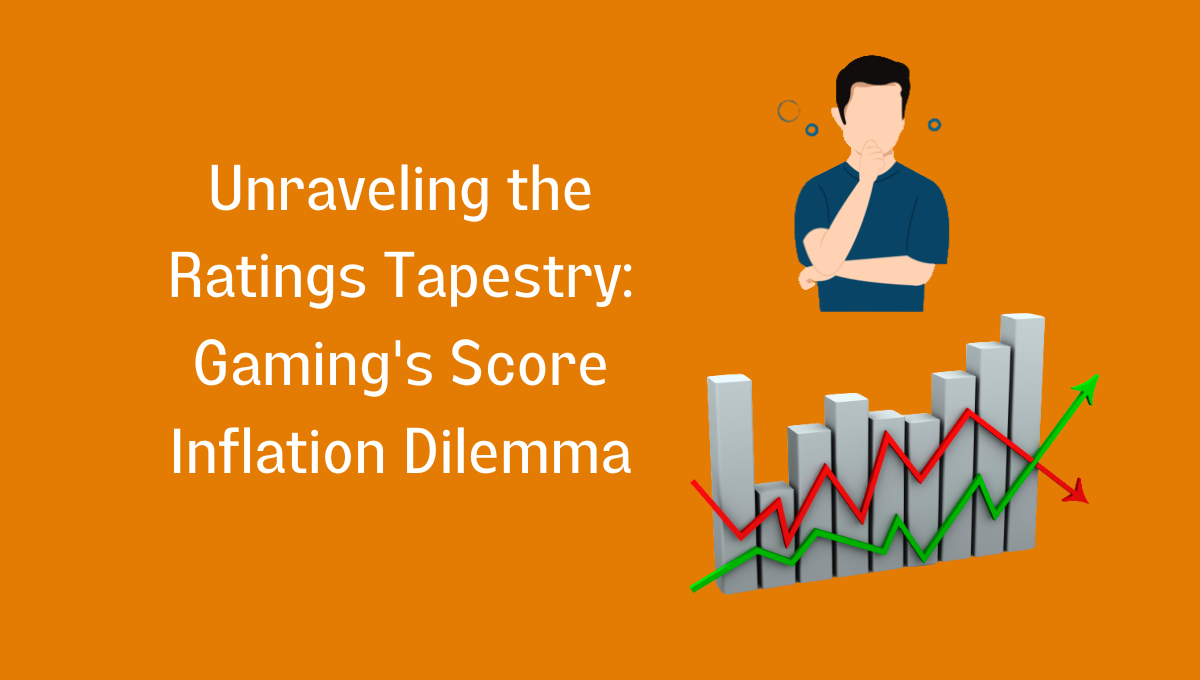Decoding Game Review Scores: The Inflation Conundrum
Inflation Nation: The Curious Case of Game Review Scores
Remember the days when an ‘average’ grade meant a C and anything below that was reserved for those, erm, “less studious” kids (cough me cough)? If you thought that only applied to school exams, then welcome to the wild world of game review scores. You see, movie critics often give out 1/4 scores, with 2/4 for those “average” films. But game reviewers? They rarely go below 5/10, and “average” games are often somewhere around a 7/10. What’s the deal with that, and should we be concerned?
Fear not, dear reader, because today we’re going to unpack the reasons behind this ratings inflation in the gaming world.
Game Show: Serious Reviewers vs Hobbyists
First things first, it’s worth mentioning the distinction between professional game reviewers and hobbyist reviewers. For those who review games for a living, there’s a natural positive outlook towards games, and they should review any games they’re sent, be it good, bad, or ugly. On the other hand, hobbyists are more likely to review games they enjoy since time and cost are factors. After all, who wants to waste time and money playing and reviewing games they’re just not that into? Not us, that’s for sure.

Subterranean Ratings Blues: The BGG Rating System
When it comes to rating games, the BoardGameGeek rating system is king. For those not in the know, the BGG system is based on a person’s desire to play, with 5 considered average (and not necessarily a bad thing). The key here is acknowledging that ratings are subjective, and will naturally skew higher when it comes to people rating games they actually enjoy or know they have an interest in. So, while a professional reviewer might dish out a 3/10 for a poorly-developed game, casual players may only see scores of 6 or higher because they only ever play games they like.

All Aboard the Hype Train: Early Impressions and Hype
Remember that time you played a game and thought, “Wow, this is the BEST game ever!” only to realize a few months later that you’d been swept away by the hype? Yup, we’ve all been there. Early impressions and external factors like Kickstarter hype can temporarily inflate a game’s score. With that in mind, it’s important to pay more attention to the reviewer’s comments and opinions on games, rather than just the number they assign.

Know Thyself: Personal Preferences and Selection Bias
Ultimately, the rating of a game often comes down to personal preferences and individual gaming tastes. Ask yourself: if you love Eurogames and dislike thematic games, why would you rate or even bother playing a thematic game if you already know it’s not your thing? And if you’re already inclined towards the games you choose to purchase and play, it’s no wonder that the scores skew towards the higher end of the spectrum.

It’s All a Game, After All
So, there you have it – a deep dive into the weird, wonderful, and occasionally confusing world of game review scores. While it may at first seem like ratings inflation is a strange and perplexing phenomenon, understanding that ratings are subjective and influenced by various factors can help put things into perspective. Stay tuned, and perhaps we’ll explore more nuanced aspects of the gaming world in future articles. Until then, fellow gamers, happy playing!





